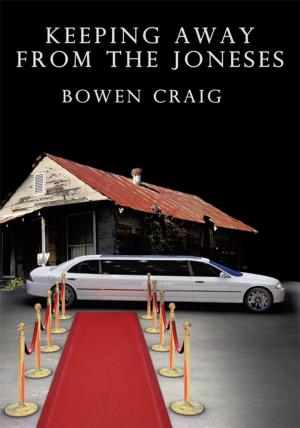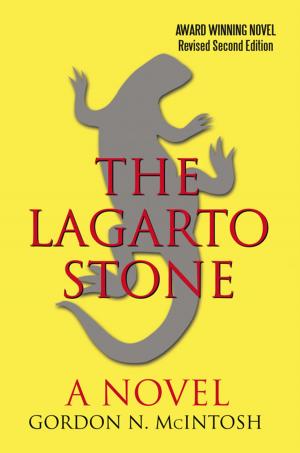Talladega Days
Race, Rural Life, and Memories of a Forgotten Legend and Kkk Survivor
Biography & Memoir| Author: | Houston Brummit | ISBN: | 9781440182693 |
| Publisher: | iUniverse | Publication: | January 12, 2010 |
| Imprint: | iUniverse | Language: | English |
| Author: | Houston Brummit |
| ISBN: | 9781440182693 |
| Publisher: | iUniverse |
| Publication: | January 12, 2010 |
| Imprint: | iUniverse |
| Language: | English |
TALLADEGA DAYSRace, Rural Life, and Memories of a Forgotten Legend and KKK Survivor is an intriguing biography of a complex, nineteenth century man who presented at least three faces to the world: a public face of hard-earned competency and at least two private faces of varying degrees of intimacy and supportiveness to what might be characterized as family. The story is set against the background of hard times in an agrarian, segregated South and a countervailing, but quite possibly, equally racist North. Dr. Houston Brummits recounting of the life and times of Dr. William Brummit is interspersed with personal interpretations of historic eventsincluding his Ku Klux Klan assault and abduction. This one, resurrected life gives those of us who wonder about post-racial America time to reflect on the extraordinary spirit of those Americans of color, like William H. Brummit, who, in spite of their own failings and the threats made to their lives and liberties, insisted upon respect despite the devastating cost.
CLAUDEWELL S. THOMAS, M.D., MPH
Professor Emeritus
Psychiatry and Biobehavioral Sciences
David Geff en School of Medicine, UCLA
Distinguished Life Fellow
Drawing on public sources, oral history, and a rich trove of personal correspondence, Brummit revealsthe struggles and triumphs of a family deeply aff ected by the racial hierarchy of the early twentieth century South but not broken by it. Th e life of the authors grandfather, William H. Brummit, reminds us that even during the nadir of American race relations, African Americans vigorously pursued equality, maintaining their dignity and often achieving success in a social environment built upon and structured to preserve a belief in Black inferiority.
JACQUELINE AKINS, PH.D.
Chair, Department of History, Philosophy and Religion Studies
Community College of Philadelphia
Houston Brummits genealogy provides a visual storyline of his 1869 patrilineal connection to his grandfather, Dr. William H. Brummit; his slave roots in Talladega, Alabama; and his grandfathers resultant escape to Chicago, Illinois, at the provocation of the Ku Klux Klan in 1924. Captured in monologues rather than literary prose style, TALLADEGA DAYS is valuable in its chronology, oral history, and cinematic currency. Not since Alex Haleys Roots has an author given voice to an ancestry that records a familys scope of humanity on the American landscape from both sides of the social and color spectrum. Not only does Brummit lay a framework for a screenplay that balances the scales on entertainments view of American black life, but also, his ancestral voices provide a paradigmatic shift from what the industry has come to accept as traditional events in black life. And in this shift, we find a biography that is accessible to a universal audience.
TY COLLINS, BA, MFA
Independent producer/director, South Carolina Film Commission
Member of the Charleston Jazz Initiative/Avery InstituteCollege of Charleston
TALLADEGA DAYSRace, Rural Life, and Memories of a Forgotten Legend and KKK Survivor is an intriguing biography of a complex, nineteenth century man who presented at least three faces to the world: a public face of hard-earned competency and at least two private faces of varying degrees of intimacy and supportiveness to what might be characterized as family. The story is set against the background of hard times in an agrarian, segregated South and a countervailing, but quite possibly, equally racist North. Dr. Houston Brummits recounting of the life and times of Dr. William Brummit is interspersed with personal interpretations of historic eventsincluding his Ku Klux Klan assault and abduction. This one, resurrected life gives those of us who wonder about post-racial America time to reflect on the extraordinary spirit of those Americans of color, like William H. Brummit, who, in spite of their own failings and the threats made to their lives and liberties, insisted upon respect despite the devastating cost.
CLAUDEWELL S. THOMAS, M.D., MPH
Professor Emeritus
Psychiatry and Biobehavioral Sciences
David Geff en School of Medicine, UCLA
Distinguished Life Fellow
Drawing on public sources, oral history, and a rich trove of personal correspondence, Brummit revealsthe struggles and triumphs of a family deeply aff ected by the racial hierarchy of the early twentieth century South but not broken by it. Th e life of the authors grandfather, William H. Brummit, reminds us that even during the nadir of American race relations, African Americans vigorously pursued equality, maintaining their dignity and often achieving success in a social environment built upon and structured to preserve a belief in Black inferiority.
JACQUELINE AKINS, PH.D.
Chair, Department of History, Philosophy and Religion Studies
Community College of Philadelphia
Houston Brummits genealogy provides a visual storyline of his 1869 patrilineal connection to his grandfather, Dr. William H. Brummit; his slave roots in Talladega, Alabama; and his grandfathers resultant escape to Chicago, Illinois, at the provocation of the Ku Klux Klan in 1924. Captured in monologues rather than literary prose style, TALLADEGA DAYS is valuable in its chronology, oral history, and cinematic currency. Not since Alex Haleys Roots has an author given voice to an ancestry that records a familys scope of humanity on the American landscape from both sides of the social and color spectrum. Not only does Brummit lay a framework for a screenplay that balances the scales on entertainments view of American black life, but also, his ancestral voices provide a paradigmatic shift from what the industry has come to accept as traditional events in black life. And in this shift, we find a biography that is accessible to a universal audience.
TY COLLINS, BA, MFA
Independent producer/director, South Carolina Film Commission
Member of the Charleston Jazz Initiative/Avery InstituteCollege of Charleston















